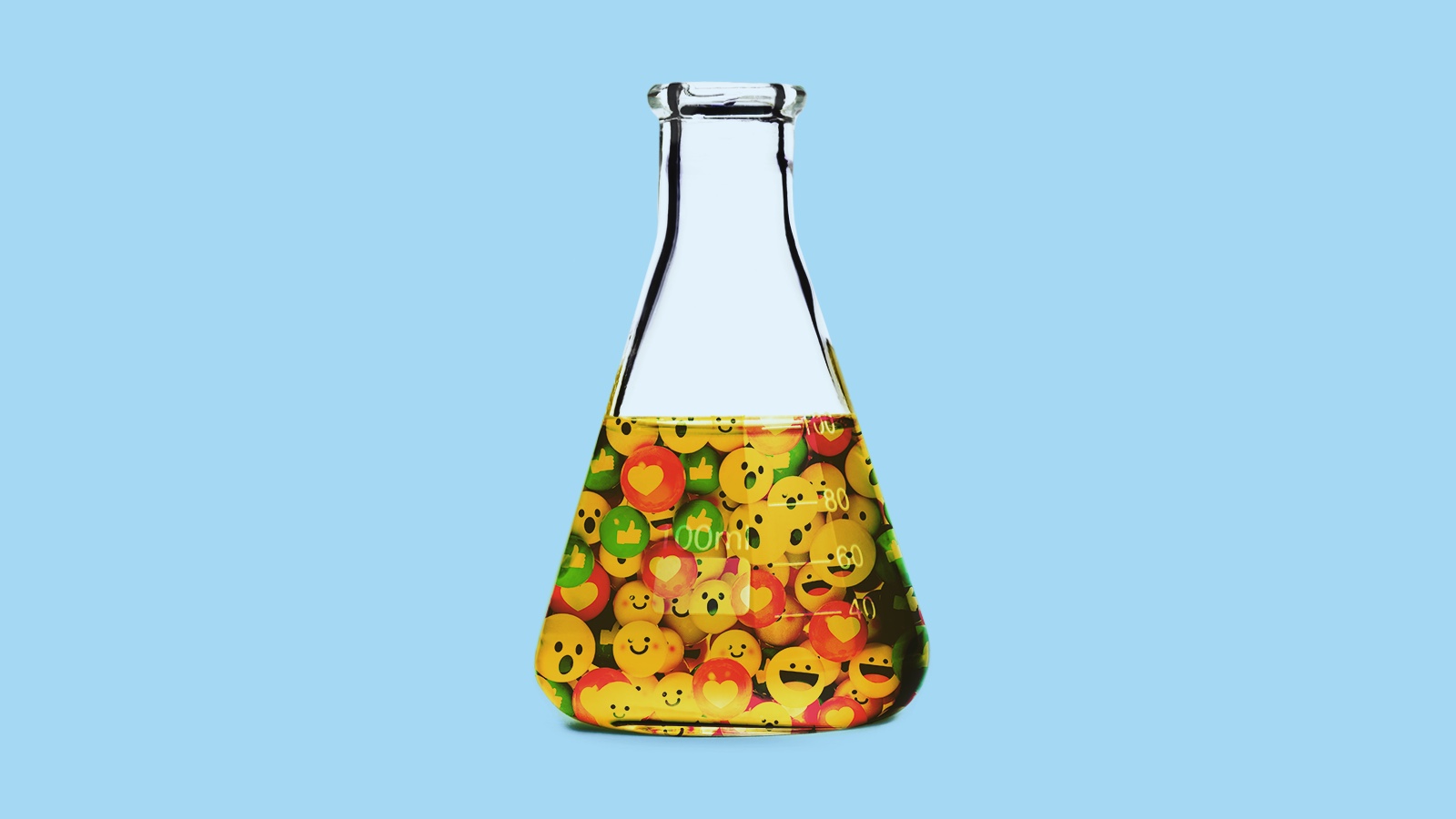The more we see fake news, the more likely we are to share it

Luis Davilla/Cover/Getty Images
Over the last few years, so-called “fake news” — purposefully untrue misinformation spread online — has become more and more of a concern.
From extensive media coverage of the issue to government committees being set up for its investigation, fake news is at the top of the agenda — and more often than we’d like, on top of our newsfeeds.
But how does exposure to misinformation impact the way we respond to it? A new study, published in Psychological Science, suggests that the more we see it, the more we’re likely to spread it. And considering the fact that fake news is more likely to go viral than real news, this could have worrying implications.
Research has found that previously encountered information feels more “fluent” — in other words, we find it easier to process. This, in turn, gives it a “ring of truthfulness”, write Daniel Effron from London Business School and Medha Raj from the University of Southern California: Repeated information feels true, even as we simultaneously acknowledge it’s not. And, the pair predicted, because our intuitions often drive our moral judgements, we may feel it less unethical to share frequently encountered misinformation, even if we know it’s false, simply because it has this “feeling” of truth.
To test their hypothesis, the team surveyed 138 men and women from the US. Participants, who identified with a range of political affiliations, were first presented with six real-life fake news headlines, half of which appealed to Republicans (for example “Election Night: Hillary Was Drunk, Got Physical With Mook and Podesta”) and half to Democrats (e.g. “Pennsylvania Federal Court Grants Legal Authority to REMOVE TRUMP After Russian Meddling”).
Participants were shown the headlines four times, each time rating how interesting, funny, or well-written they were. After a distractor task, participants were shown a message clearly stating that what they were about to see was fake, and were again shown the familiar headlines as well as six they hadn’t already seen.
They were then asked to rate the headlines across a number of measures — how unethical or acceptable it would be to publish the headline, how likely they would be to like or share it, post a negative comment or block the person who posted it, and how accurate they felt the headline was.
The results suggested that familiarity did have an impact. Headlines previously seen by participants were rated as less unethical to publish, and were significantly more likely to be liked and shared than new headlines; participants were also less likely to block or unfollow people who had shared previously seen fake news.
This probably wasn’t down to misplaced belief in the news, either: participants did not rate previously seen headlines as more accurate than new ones. A second experiment, on 800 participants, found that even seeing the same headline just once before was enough to produce similar results, and a third found that asking participants to “take their time” and “deliberate” over their choices had little effect. In a final experiment, participants were told they could share headlines with others about to take part in a similar study — and again, they were more likely to actively share familiar headlines.
With fake news proliferating on the feeds of billions of people across the world, the findings have important implications. And they could also have an impact on how we deal with fake news. Many efforts to stop fake news rely on fact checking — trying to inform readers that what they’ve seen is not true, and giving a more factual account of what’s actually going on. But with results here suggesting that knowing something is false has little impact on likelihood of sharing, new angles may need to be considered.
It seems unlikely that we’re going to stop fake news any time soon — especially during periods of political upheaval. But understanding how — and why — we respond to it the way we do may help tackle its spread.
Emily Reynolds (@rey_z) is a staff writer at BPS Research Digest.
Reprinted with permission of The British Psychological Society. Read the original article.





